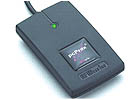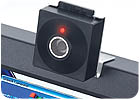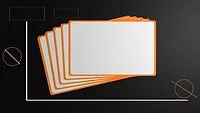ACCESSControl: Network Access Compliance in the Cards

It’s the same card for door and computer network access and it also helps meet healthcare privacy compliance. Such designs blend the best of convergence with the real needs of enterprises including multinational corporations, educational institutions and healthcare facilities.
Top medical professionals, superior medicine and progressive change make the University of Colorado Hospital one of the leading hospitals in the nation. Ranked among the top hospitals in the country by U.S. News & World Report’s annual survey of “America’s Best Hospitals,” it is respected nationally and internationally for its exceptional teams of medical specialists. The 534-bed hospital has two campuses, the main facility in Denver and a new one in suburban Aurora.
Challenge
Administrators at the University of Colorado Hospital had to find a network access solution that could handle the particular needs of a 21st century healthcare environment, including a roving workforce of medical professionals that often move from computer to computer throughout their shifts. More importantly, the solution also had to ensure compliance with the federal Healthcare Information Portability and Accountability Act (HIPAA) protecting the integrity of electronic patient records.

Selection criteria
To meet these demands, hospital administrators needed a network access solution that provided:
- Single Sign-On (SSO) capability
- Faster access for doctors and nurses and more flexibility in dealing with their patients’ records and actual treatment
- Availability of applications and patient data at any workstation
- Automatic lockdown of workstations when not in use
- Easily enabled integration with Web, client/server and legacy applications.
The benefits include:
- Help to achieve HIPAA compliance
- Uses existing proximity cards
- Two-factor authentication
- Detects when user leaves and automatically locks computer.
After a thorough evaluation of several providers, the University of Colorado
Hospital chose a complete solution integrating pcProx and pcProx Sonar from RF IDeas (Arlington Heights, Ill.) with Boise, Idaho-based HealthCast’s eXactACCESS enterprise SSO software.
With pcProx and eXactACCESS, the hospital is better equipped to achieve HIPAA compliance. When someone walks away from a workstation, a sonar device installed on the computer detects the change, and the Privacy Guard from eXactACCESS causes the computer to lock down. Also, authentication is fortified using a proximity card that requires a user PIN. Thus, patient data integrity can be greatly enhanced.
Convenient, productive for caregivers
Using pcProx, doctors and nurses simply pass their badge across the reader and then type their PIN. Security access and work data is routed through eXactACCESS, bringing them right to their administrator-defined portion of the network. It allows them to log off one machine and onto another without any interruption in workflow, as eXactACCESS has preserved their work just as they left it.
“What’s really nice about our SSO system is that you just put in one password with your user ID and it allows you to go into the various applications,” said Shelly Limon, a nursing manager at the University of Colorado Hospital. “Whereas before, if I moved from one location to another, I’d have to remember all my different usernames and passwords. Sometimes that gets a little frustrating on my part, because I change my passwords all the time.”
Conclusion
The integrated solution brings fast user switching to the University of Colorado Hospital’s domain using existing proximity cards, enabling users to resume work seamlessly on any workstation in the enterprise and securely lock down any desktop. It eliminates generic network logons, adds two-factor authentication, encrypts all data, automates the Privacy Shield and manages sessions at the operating system level.
Looking for a reprint of this article?
From high-res PDFs to custom plaques, order your copy today!





